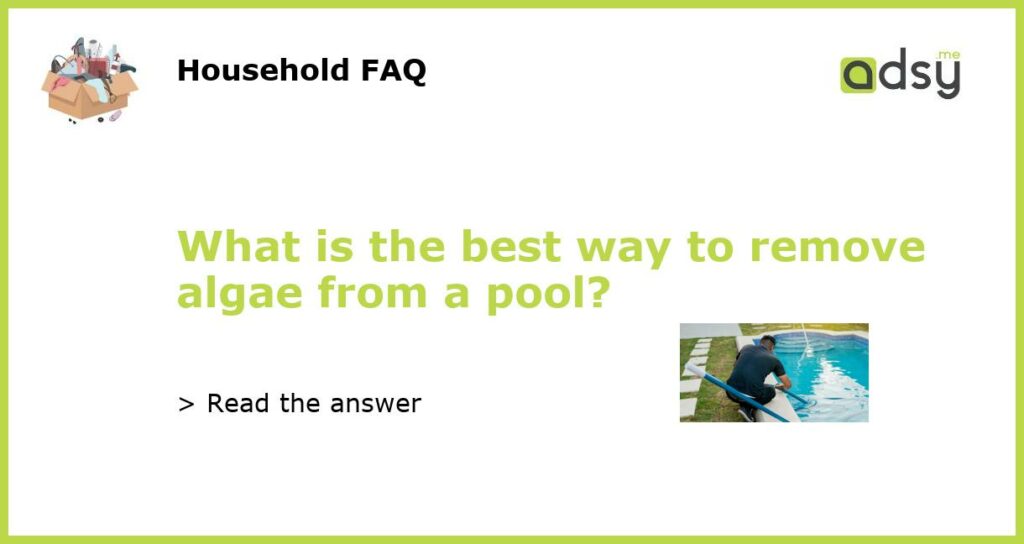The Importance of Removing Algae from Your Pool
Algae is a common problem that pool owners face, and if left untreated, it can quickly spread and ruin the water quality. Not only does algae give the pool an unsightly appearance, but it can also make the water dangerous to swim in. To maintain a clean and inviting pool, it is crucial to regularly remove algae.
Manual Removal Methods for Algae
There are several manual methods that you can use to remove algae from your pool. One effective method is to brush the affected areas with a pool brush. This helps to loosen the algae from the walls and floor of the pool, making it easier to remove. Another manual method is to use a pool vacuum to remove the loosened algae. Make sure to vacuum the entire pool, paying extra attention to the areas with the most visible algae growth.
Chemical Treatment Options to Remove Algae
Chemical treatments are also commonly used to remove algae from pools. One popular option is the use of algaecides, which are chemicals specifically designed to kill and prevent the growth of algae. Algaecides can be added directly to the pool water, and they work by breaking down the algae cells and preventing their regrowth. It is important to carefully follow the instructions provided by the algaecide manufacturer to ensure safe and effective use.
Another chemical treatment option is the use of chlorine shock. Chlorine shock is a concentrated form of chlorine that is added to the pool water to kill algae and bacteria. It is recommended to use a shock treatment with a high chlorine concentration to effectively remove algae. Be sure to follow the recommended dosage and safety guidelines when using chlorine shock.
Preventing Algae Growth in Your Pool
Preventing algae growth is key to maintaining a clean and algae-free pool. One way to prevent algae growth is to regularly test and maintain the pool water’s chemical balance. This includes monitoring and adjusting the pH, chlorine, and alkalinity levels. By keeping these levels within the recommended range, you create an environment that is less favorable for algae growth.
Regularly cleaning and maintaining the pool is also important in preventing algae growth. This includes skimming the water surface to remove debris, regularly brushing the pool walls and floor, and ensuring proper filtration and circulation. Additionally, keeping the pool water properly balanced and sanitized will help to maintain an environment where algae growth is less likely.
Seeking Professional Help for Algae Removal
If you are unable to effectively remove algae from your pool or if the algae problem persists, it may be necessary to seek professional help. A professional pool cleaning service has the expertise and tools necessary to thoroughly clean and remove algae from your pool. They can also provide guidance on proper pool maintenance and prevention strategies to avoid future algae growth.
When selecting a professional pool cleaning service, be sure to research their experience, reputation, and customer reviews. It is also important to inquire about their methods and products used to ensure they are safe and effective for your pool. By seeking professional help, you can ensure the algae is properly eradicated and your pool is restored to its optimal condition.

